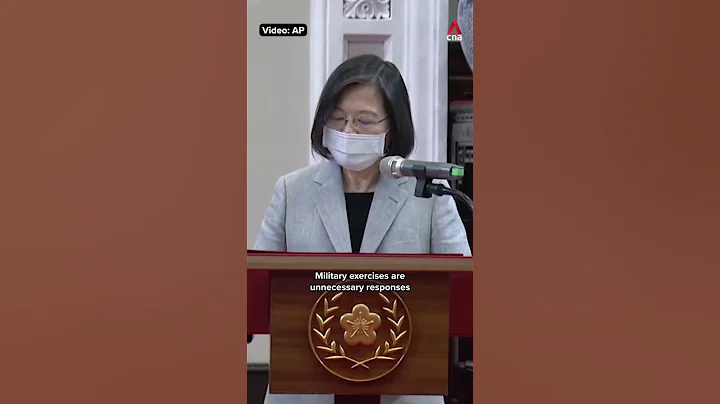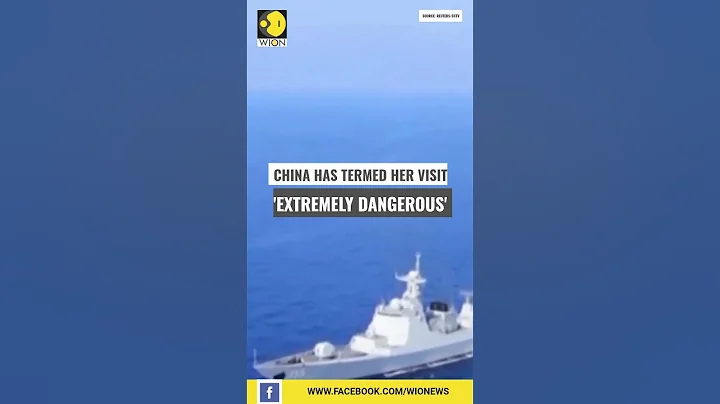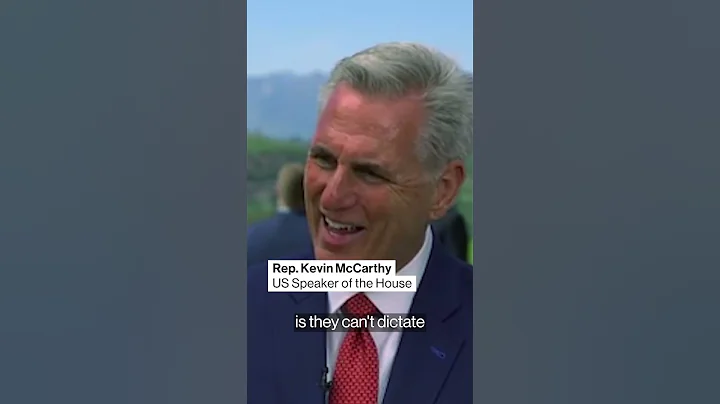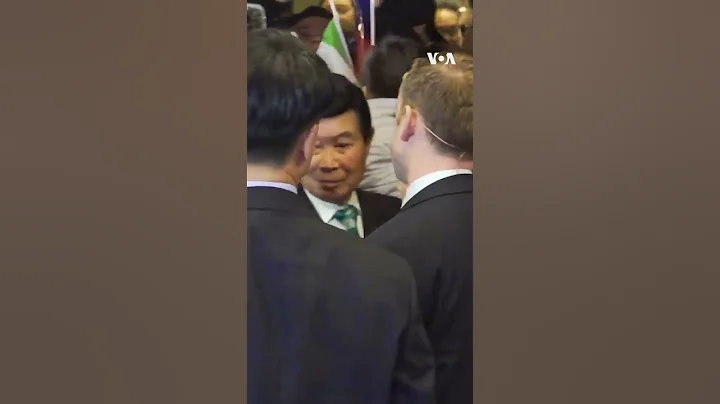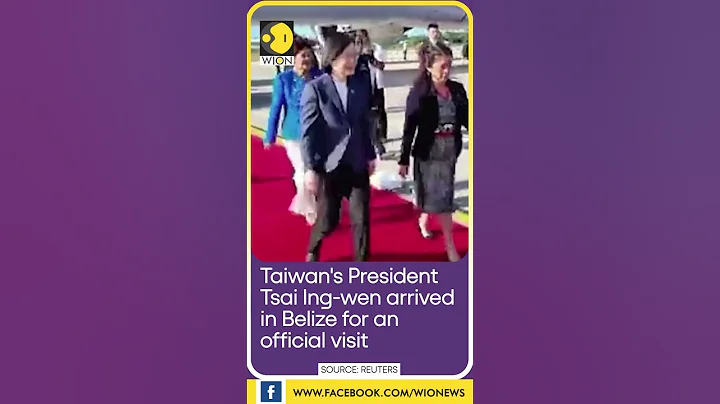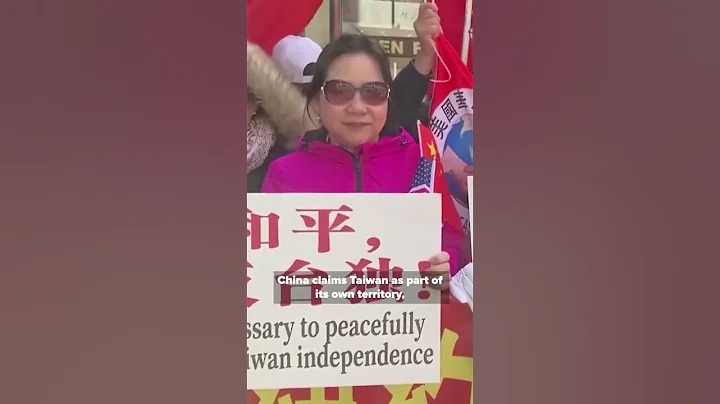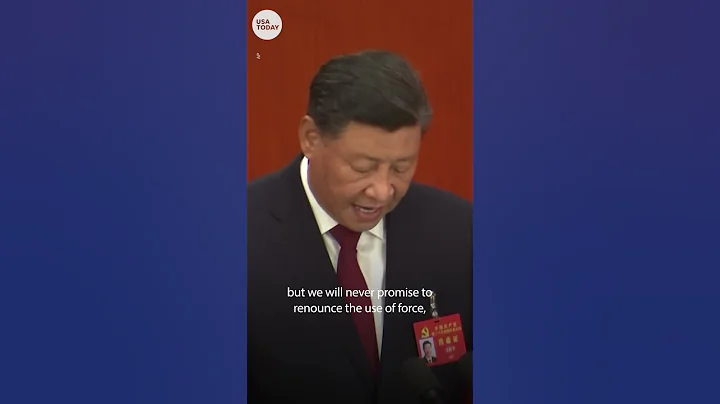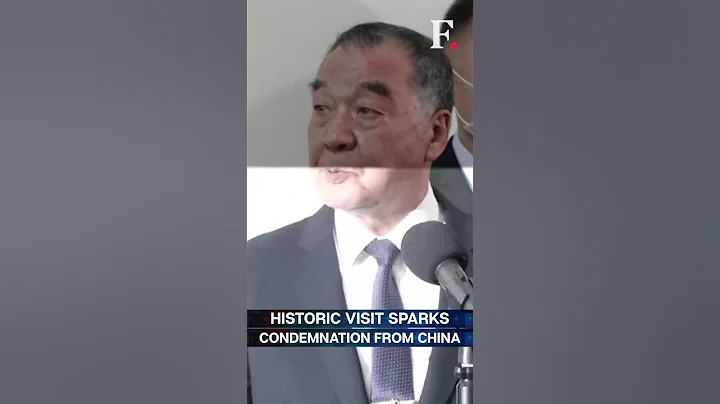
Recently, Taiwan's "Executive Yuan" spokesman Xu Guoyong officially announced the reorganization list of Tsai Ing-wen's ruling team. This reorganization involves several personnel changes in the "Minister of Foreign Affairs", "Minister of Defense", "Minister of Labor", chairman of the Mainland Affairs Council and other departments. It is reported that this personnel change is basically led by Tsai Ing-wen. The biggest feature of the list of members of the new ruling team is that the administrative team has become increasingly green. The original "Foreign Minister" Li Dawei, "Minister of Defense" Feng Shikuan, and Chairman of the Mainland Affairs Council Zhang Xiaoyue, who had a KMT flavor, have all stepped down.
Regarding this change, the personnel changes related to foreign affairs and cross-strait relations have undoubtedly received the most attention from the outside world. Some commentators believe that Tsai Ing-wen's changes in these aspects highlight that Tsai Ing-wen has fully felt the increasing pressure from mainland China and has to make necessary adjustments. Among them, Chen Mingtong, the new chairman of Taiwan's Mainland Affairs Council, is Tsai Ing-wen's goodwill to the mainland. Chen Mingtong was Tsai Ing-wen's deputy when she was chairman of the Mainland Affairs Council. He has rich connections on both sides of the Taiwan Strait, so he is widely regarded by the outside world as an attempt by Tsai Ing-wen to break the current cross-strait political deadlock.
It is true that Chen Mingtong is one of the few so-called "China-savvy factions" in the Green Camp, and has good relations with mainland government, academia, media and all walks of life; but it is probably too optimistic to believe that Chen Mingtong can break the political deadlock across the Taiwan Strait after taking office. Replacing Tsai Ing-wen's close associates in positions such as "Foreign Minister" and Chairman of the Mainland Affairs Council is probably not a signal that she wants to improve cross-strait relations. On the contrary, it is the beginning of his decision to choose sides on cross-strait relations. In other words, after completing the suppression and marginalization of the Kuomintang internally, Tsai Ing-wen will take the initiative to break the status quo and use the power of other countries such as the United States and Japan to embark on a path of confrontation with the mainland.
First of all, Chen Mingtong recognized Tsai Ing-wen’s previous line of “maintaining the status quo”. In Chen Mingtong's own words, Tsai Ing-wen has achieved the "Nash equilibrium" of cross-strait relations, that is, Tsai Ing-wen neither "submits" to Beijing nor deliberately "confronts", breaking away from the traditional stereotypes of "submit" or "confrontation" , creating a dynamic "Nash equilibrium". I won't go into Chen Mingtong's misunderstanding of the so-called "Nash equilibrium" here. According to its formulation, if this opinion is true, it means that Chen Mingtong will only continue to consolidate Tsai Ing-wen's refusal to recognize the "1992 Consensus" instead of Provide any assistance to the improvement of cross-strait relations.
What's more, judging from the policies Tsai Ing-wen has introduced since taking office, although Tsai Ing-wen has not declared the "Taiwan independence" line as high-profile as Lee Teng-hui and Chen Shui-bian, she has adopted various covert methods to "de-Sinicize" and "de-China" """, such as canceling the rituals of offering sacrifices to Huangling Mausoleum and Zheng Chenggong from a distance, liquidating history in the name of transformational justice, and incorporating Chinese history into the history of East Asia in the training curriculum to bury the national memory of the Taiwanese people. These all reflect Tsai Ing-wen’s essence of “Taiwan independence”.
Secondly, judging from the personnel changes this time, the more controversial ministers in Tsai Ing-wen’s ruling team are as stable as a rock in this change. This is also a major characteristic of Tsai Ing-wen since she came to power, that is, she does not care about so-called polls and public opinion. In other words, Tsai Ing-wen will only act according to her own will and will not care about the so-called public opinion at all. Therefore, even though the Taiwanese people are currently worried about cross-Strait relations, and more than 60% of the people express dissatisfaction or lack of confidence in Tsai Ing-wen's cross-Strait policies, will Tsai Ing-wen really change the cross-Strait policies because of this? I'm afraid it's difficult. Based on this, it can be believed that Chen Mingtong's appointment as chairman of the Mainland Affairs Council is just a smokescreen thrown by Tsai Ing-wen to confuse the Taiwanese people.
Finally, a major background to Tsai Ing-wen’s wave of personnel adjustments is the changing attitude of the United States towards China. At the end of 2017 and the beginning of 2018, Trump successively released two documents, the "National Security Strategy" and the " U.S. Defense Strategy ", regarding China as a strategic competitor and believed that China and Russia would revise the existing international order. , launching offensive operations against geostrategic aspects related to the core interests of the United States. Therefore, Trump will inevitably fight back against China, and the "Taiwan card" will obviously be a "good card" in Trump's eyes.
In fact, since taking office, Tsai Ing-wen has tried to warm up relations between the United States and Taiwan—by lobbying the U.S. Congress to formulate an authorization bill to allow U.S. warships to dock in Taiwan, and publicly stated her stance on joining the "Indo-Pacific Strategy" aimed at confronting mainland China. . These truly reflect Tsai Ing-wen’s views on mainland China. Trump's return to the traditional line of major power confrontation has given Tsai Ing-wen exactly the opportunity. Therefore, after internally suppressing and marginalizing political parties such as the Kuomintang, cross-strait relations have reached a point where Tsai Ing-wen feels that it is time for change. Therefore, whether the candidates responsible for foreign affairs or cross-strait affairs are replaced by Tsai Ing-wen's cronies, they can better implement their personal will to the end without encountering any resistance.
Therefore, do not think that cross-strait relations will improve due to this wave of personnel changes. On the contrary, it is more likely that Tsai Ing-wen will take the initiative to become a pawn of the United States against mainland China, and cross-strait relations will move towards a more volatile state. (Special commentator Wei Bin)
